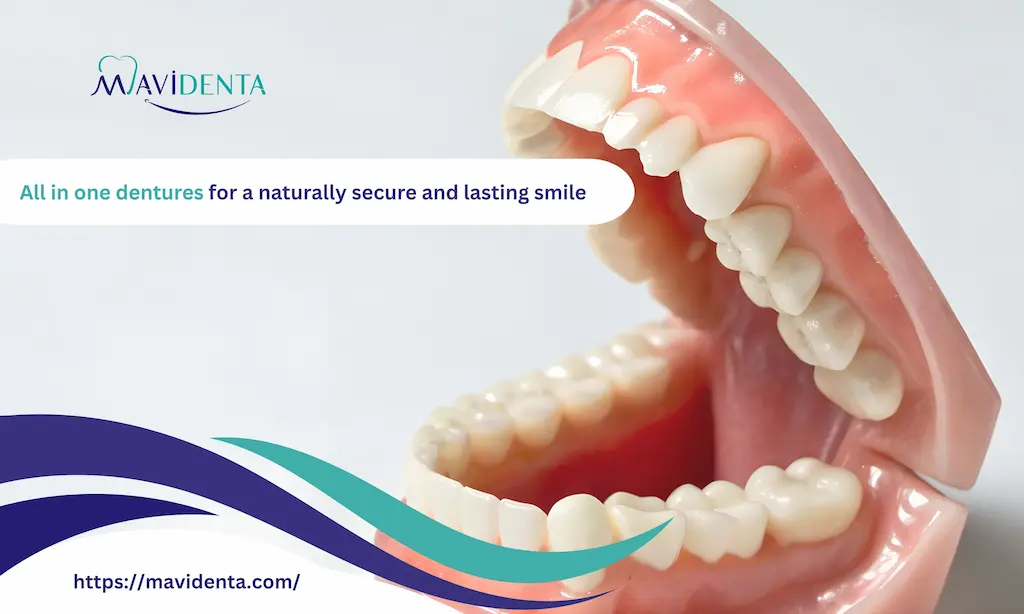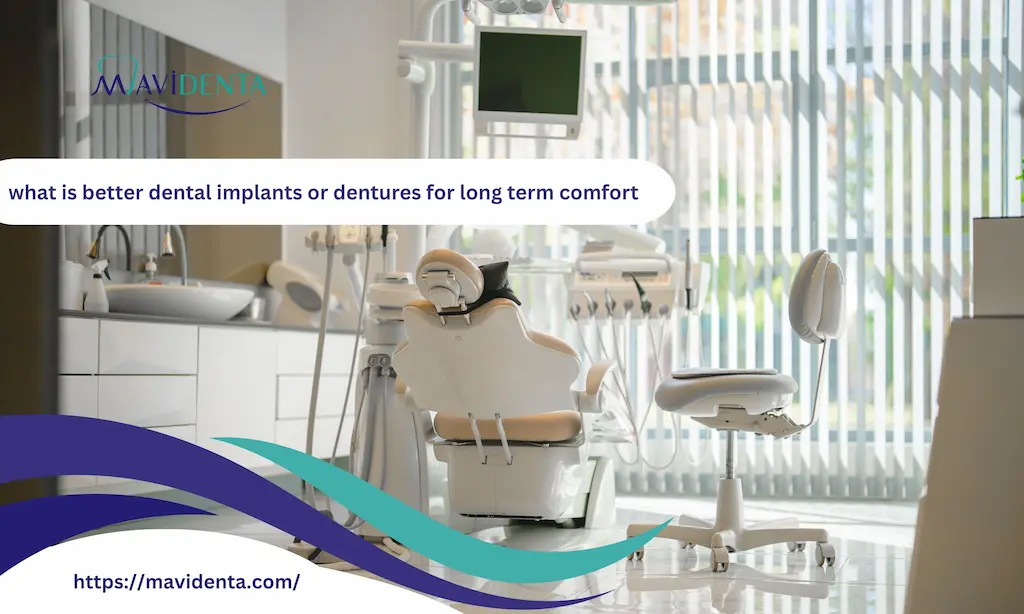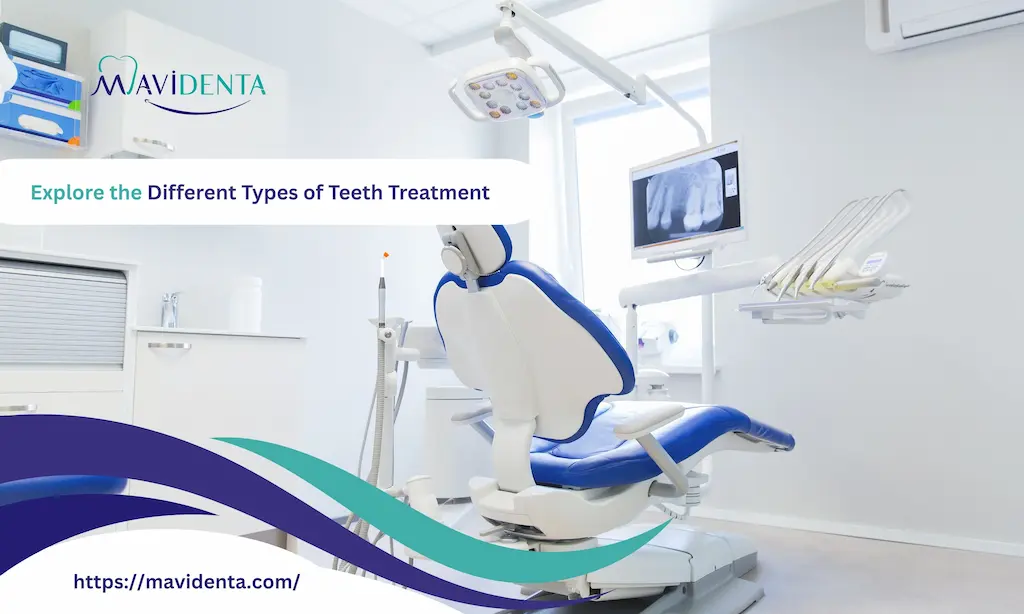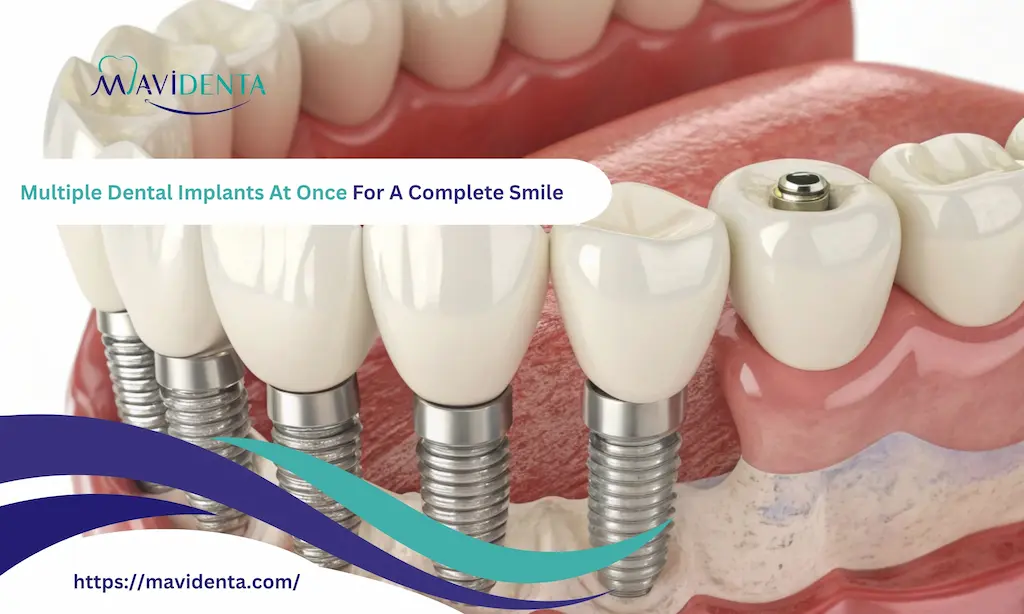Dental implants are the best way to permanently replace missing teeth through surgery, so take care of your natural teeth to use them for a long period of time and even for life.
After the implant, you will be given a dental implant guide to keep the implants in good condition. If the surrounding gums and bones are not preserved, implants will become infected, leading to failure of the implant treatment.
Sometimes some complications may occur after dental implants, such as bleeding gums, so we will learn how to stop bleeding while on implant , in addition to ways to control the bleeding.
Why does the implant cause bleeding?
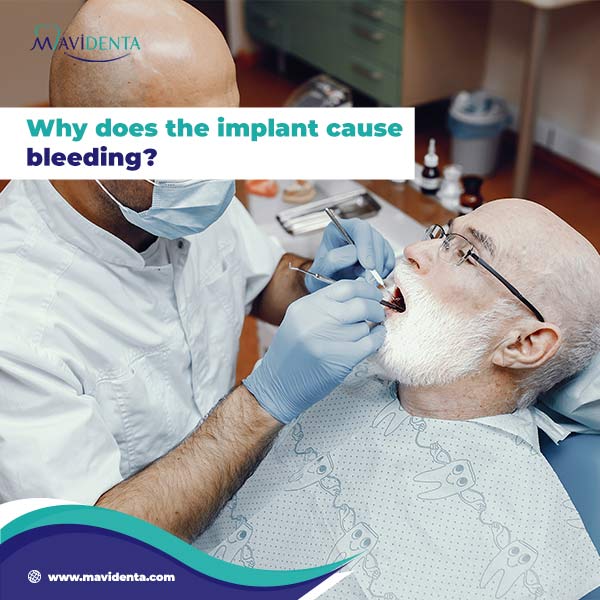
In order to be able to discuss how to stop bleeding while on implant ? we will divide the bleeding into two parts:
Bleeding during dental implants:
Bleeding can occur during dental implant surgery due to increasing the patient’s blood fluidity. Therefore, the dental implant doctor asks the patient to perform some tests before the implantation procedure to ensure the blood clotting factors and the patient’s ability to tolerate the surgery.
The cardiologist or internist is also contacted regarding stopping or reducing the dose of some medications that cause blood fluidity. Blood, such as warfarin Temporarily until the implantation process is complete.
Bleeding after dental implant surgery:
According to Mavidenta doctors, this kind of bleeding may happen because:
- Failure to suture the wound tightly, causing the blood to stop difficult.
- Cutting the gums while suturing the wound.
- Excessive load on the implant on the same day of the operation.
- It may cause bleeding to continue for several hours.
- Injury to some blood vessels during the implantation process.
- It results in severe bleeding after the operation and requires intervention immediately.
Also check: What is the best country for dental implants?
How common and serious is bleeding while on implant?
If you are searching for how to stop bleeding while on implant ? It is common for bleeding to occur after tooth extraction. The patient may think that the bleeding is more severe than it actually is because his saliva is the color of blood.
The bleeding can often be stopped by continuous pressure on the extraction or surgical site using a piece of gauze or cotton for an hour, and this is usually By asking the person to bite on a piece of gauze over the extraction site. The patient may have to repeat the procedure two or three times.
It is necessary to press the gauze pad and keep it in place for at least an hour. Bleeding problems are often caused by the person removing the gauze pad to see if the bleeding has stopped. If the bleeding continues for more than a few hours, it is necessary to consult a dentist.
Important Information Regarding Bleeding and Medication:
In some cases, the dentist may need to clean the bleeding area and close it using sutures. Patients who regularly take blood thinners (such as warfarin or aspirin) should inform their dentist about this a week before the extraction date.
Because these medications may increase the patient’s risk of bleeding, even if the patient takes them at a rate of one pill every few days. The person’s physician may adjust the medication dose or stop it temporarily for a few days before the surgery, after consulting with the dentist.
Explore: Is Dental Implants Safe?
How long after implant does bleeding stop?
Speaking of how to stop bleeding while on implant ? Bleeding or redness in the saliva is normal for 24 hours. Bleeding can be controlled by biting on gauze placed directly on the bleeding wound for 30 minutes. If bleeding continues please call for further instructions.
How to stop bleeding while on implant?
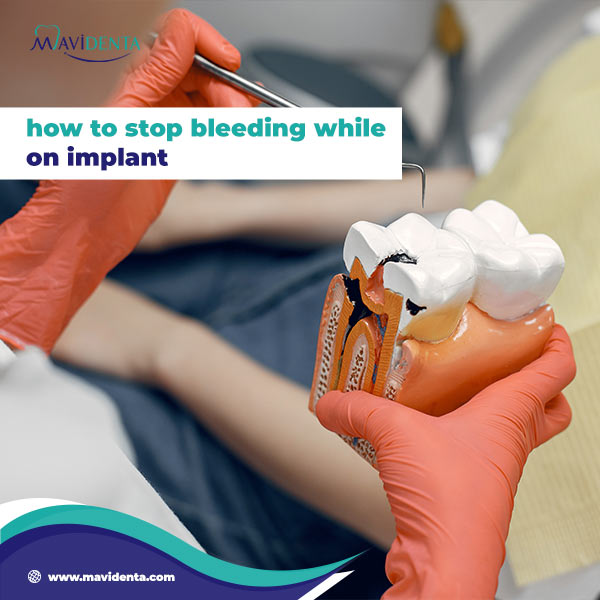
Bleeding After Implant Surgery: Some bleeding is normal for 48-72 hours. Apply gentle pressure with sterile gauze for the first few hours.
Managing Heavy Bleeding:
- If bleeding is heavy, remove large clots gently.
- Fold sterile gauze or use a wet tea bag in gauze and press firmly on the bleeding area for an hour.
- Repeat if necessary.
Seek Medical Advice: If bleeding continues despite pressure, consult your doctor.
Avoid Actions that Worsen Bleeding:
- Don’t forcefully spit or rinse your mouth.
- Avoid collecting saliva or putting pressure on the implant area.
Nosebleeds: If you have an upper jaw implant or sinus lift, expect potential nosebleeds. Don’t try to forcefully expel blood; apply pressure instead.
Read more: Dental Implants Problems Side Effects.
Conclusion
At the end of the text, gum bleeding is one of the things that occurs naturally after a dental implant. It may last for 24 hours, so you must follow the dentist’s instructions regarding how to stop bleeding while on implant? If the bleeding continues for a longer period, please return to the dentist in order to undergo a medical examination.
FAQs
Is nosebleeds normal after dental implants?
If the implant was made in the upper jaw, you may have a nosebleed and this is normal.
How do I sleep after dental implants?
You may be afraid to sleep on your face after dental implants. This fear is completely justified, because sleeping on your face may impede blood flow to the area.
It is recommended to place two pillows on either side of your face for the first 3 nights so that you do not shake your head during sleep and do not sleep on your face. Placing a warm towel on the pillow next to the face also helps reduce pain and potential inflammation.
How many days do we feel pain and swelling after dental implants?
Depending on the extent of the implant surgery and the patient’s organ function, pain and swelling will vary. But what is certain is that pain and swelling can be controlled using a simple analgesic.
The pain and swelling persist for up to 72 hours, and if the pain and swelling do not reduce, you should suspect why the pain is worsening.
What medications need to be used after dental implants?
It is up to the dentist to determine which medications are needed for the patient, but the use of antibiotics is common.
Why are antibiotics prescribed after dental implants?
Because infections can occur in the dental implant area, it is best to use antibiotics for a few days to control the infection. In fact, the implant base is a foreign body in the jaw area that may lead to a primary infection.


